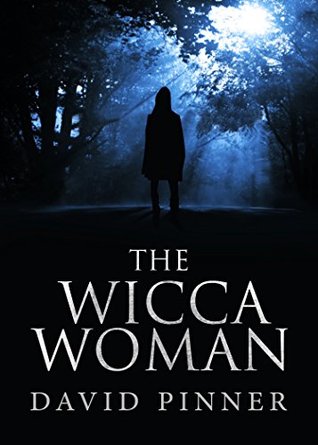
❉ The ‘Ritual’ author on the book that was the genesis of Folk Horror, and its sequel novel.

In 1967, when David Pinner’s novel Ritual was published, it created the template for what would become Folk Horror. In the novel, an outsider (policeman David Hanlin) enters an isolated village to investigate a murder in a close-knit-community and he finds nothing is what it seems. Pagan symbols, sacrificial rituals and a twist of an ending – this, it seems, is where the folk horror archetypes were created. It was also famously the book that inspired the film The Wicker Man. I spoke to David about Ritual and his Millennium-set-follow-up novel, The Wicca Woman and his upcoming projects.

I first asked David about the genesis of Ritual. It was an unusual book for the time? “Before me, there was really only Dennis Wheatley doing this. I actually wrote it while I was playing the lead in The Mousetrap in the West End.” (David was previously an actor). ”I wrote a lot of it on the Tube train and I handwrote it. The ideas came, in a way, as a mixture from Dennis Wheatley and also from Robert Graves, who wrote The White Goddess (about pagan mythology). And as I was playing a policeman in The Mousetrap, it gave me the idea of writing about a policeman. I wrote it in about eight weeks. It was a time when I also wrote a comedy about a lesbian vampire called Fanghorn, which Glenda Jackson played in the West End.”

“Ritual deals with a lot of pagan imagery and sacrificial practices. You see, I was brought up in a poor environment in Peterborough and my brothers and I used to spend a lot of time in the woods. I think the woods gave me an important part of the idea for my novel – because what happens in nature, when people hang on to ideas like ‘by sacrificing a horse you will get a great harvest’. Often in history, people have used killing and murder in a ritualistic way, in the belief, ironically, that sacrificing others will bring the people a good life. Even though it’s all predicated on death of animals!”
Ritual is set in Cornwall, and so it differs in its location from The Wicker Man. I asked David if he knew Cornwall would be a good location, “Yes, but I only knew Cornwall a bit. In fact, I had only visited it a couple of times, but I liked the isolation of Cornwall, and in those days, it was very isolated. In terms of the ritual side, my acting background also helped because in acting, there are a lot of rituals as well.”
Ritual was originally written as a screenplay. “Yes, it was initially the treatment for a screenplay that Michael Winner had on his list to do. My agent Jonathan Clowes then said, ‘Why don’t you turn it into a novel?’ And now we are in lockdown, I’m doing a similar thing. I am writing a novel based on my latest play Edred, The Vampyre. The play is part of my Vampire trilogy. Edred was performed at the London Horror Festival last year and it has a lot of humour in it. It’s based on King Edred and because he’s 1000 years old, he has seen the whole of history, so it has a lot of potential as a novel.”
I asked David if he was involved in the process of making the film The Wicker Man? “Not at all, because in those days, they just bought the rights and then they got on and made it. It was Christopher Lee, who took me out to lunch to buy the rights of Ritual, and Anthony Shaffer wrote the screenplay for the film.” I asked David if he liked the film. “Initially I didn’t, but now I do.”
In 2014 David published The Wicca Woman, which is the follow-up-novel to Ritual. The Wicca Woman takes up the story of what happened to the characters who survived in Ritual, and the characters are living in the same village of Thorn 30 years later. It describes the goings on in 1999, in the lead up to the millennium celebrations, and it has some equally-strong and unsettling imagery.

For me, reading Ritual was a different, but an equally transfixing experience to watching The Wicker Man. There’ll be no spoilers here, but the plot is largely different. However, there are clear parallels in the themes, and some of the scenes (in particular the famous scene that makes an impression on any teenager, who first sees the film or reads the book!) Ritual is a richly descriptive book whose imagery stays with you. The ending is also different, but equally unsettling. And David says “So all Isay to anyone, who’s never read Ritual, that it has a different ending to The Wicker Man – and no one has ever guessed it!”
❉ ‘Ritual’ is published by Finderskeepers. ‘The Wicca Woman’ is published by Endeavour Press and The Vampire Trilogy (Fanghorn/Edred, the Vampyre/Lucifer’s Fair) published by Oberon Modern Playwrights.
❉ James Collingwood is based in West Yorkshire and has been writing for a number of years. He currently also writes for the Bradford Review magazine for which he has conducted more than 30 interviews and has covered music, film and theatre
